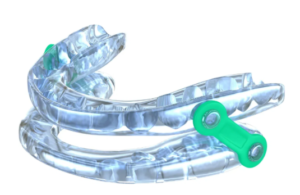
High-stress professions often place immense demands on individuals. The constant pressure can lead to mental health challenges that, if left unaddressed, may escalate into more serious issues. Specialized psychiatric support is essential for professionals navigating these turbulent environments. In particular, FAA HIMS psychiatrists play a crucial role in providing the necessary mental health support for aviation professionals.
Understanding High-Stress Professions
High-stress professions encompass a wide range of fields. These include aviation, healthcare, law enforcement, and emergency response services. Each of these careers involves significant responsibilities. The individuals in these roles must make quick decisions under pressure. They often encounter traumatic situations. Consequently, the mental well-being of these professionals is paramount.
In aviation, for instance, pilots and air traffic controllers face unique stressors. They must maintain focus and composure while managing numerous tasks. A momentary lapse in concentration can lead to catastrophic consequences. This reality underscores the need for effective psychiatric support tailored to their specific challenges.
The Role of FAA HIMS Psychiatrists
A FAA HIMS Psychiatrist is specially trained to address the mental health needs of aviation professionals. The Human Intervention Motivation Study (HIMS) program aims to assist pilots and air traffic controllers in regaining their medical certification after mental health issues arise. This program recognizes the complexity of aviation-related stress and the unique pressures faced individuals in this field.
These psychiatrists conduct comprehensive evaluations. They assess mental health conditions and provide tailored treatment plans. Their expertise allows them to understand the nuances of high-stress environments. They create supportive spaces where professionals can discuss their mental health openly. This is particularly important for those who may fear stigma associated with seeking help.
Addressing Stigma in High-Stress Professions
Stigma surrounding mental health remains a significant barrier. Many professionals hesitate to seek support due to fears of judgment. This is especially true in high-stress environments, where individuals feel they must appear strong and resilient. They worry that seeking help might jeopardize their careers.
Specialized psychiatric support can help break down this stigma. FAA HIMS psychiatrists provide a safe and confidential environment for discussing mental health concerns. They promote understanding and acceptance within the aviation community. By emphasizing the importance of mental well-being, they encourage professionals to prioritize their mental health without fear.
Preventative Care and Mental Resilience
Preventative care is vital in high-stress professions. FAA HIMS psychiatrists advocate for proactive mental health strategies. These can include regular check-ins, stress management techniques, and coping strategies tailored to individual needs. By implementing preventative measures, professionals can build resilience against the pressures of their roles.
Moreover, workshops and training sessions led psychiatric experts can equip individuals with essential skills. Techniques such as mindfulness and cognitive behavioral strategies can significantly impact stress management. Learning these skills can empower professionals to handle high-pressure situations more effectively.
The Impact of Specialized Support
The impact of specialized psychiatric support in high-stress professions cannot be overstated. Research has shown that individuals who receive tailored mental health care experience better outcomes. They report reduced anxiety, improved coping skills, and enhanced job satisfaction. These benefits not only improve individual well-being but also positively affect workplace dynamics.
In aviation, the implications are profound. When pilots and air traffic controllers prioritize their mental health, the safety of the entire system is enhanced. Well-supported professionals are more focused and attentive. This ultimately leads to safer skies for everyone.






